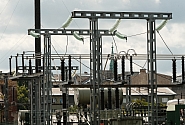
To make it easier and more reliable for consumers to compare electricity prices offered by different electricity traders, a framework will be introduced for a price comparison tool. This is provided for in the amendments to the Electricity Market Law, adopted by the Saeima in the third and final reading on Thursday, 27 March.
"Progress towards energy independence is one of the cornerstones of our national security. At the same time, energy costs have a direct impact on the well-being of our households and the competitiveness of our businesses,” stated Kaspars Briškens, Chair of the Economic, Agricultural, Environmental and Regional Policy Committee, which was responsible for advancing the draft law in the Saeima. He emphasised that the amendments would allow the law to keep pace with technological progress in this strategic sector.
The electricity price comparison tool will include information on non-personalised offers from electricity traders for both household users and businesses whose annual electricity consumption does not exceed 100,000 kilowatt-hours. The minimum requirements for such an application will be set by the Public Utilities Commission (regulator). The regulator will also create and maintain a register of electricity price comparison tools and ensure that it is publicly accessible. Electricity traders will be required to include on their invoices a website address providing information on the available electricity price comparison tools.
The comparison tool will bring together all electricity trading offers in one place, allowing end-users to compare electricity consumption and costs for similar types of households or facilities, according to representatives of the Ministry of Climate and Energy, who previously addressed the responsible committee.
The amendments also improve the regulation of direct lines (isolated electrical lines between an electricity user and a producer). The maximum length of such lines will be set at one kilometre in urban areas and five kilometres outside urban areas. This will make it possible to supply electricity to facilities that cannot be connected to the existing electricity grid, and will allow consumers to negotiate directly with producers for individual electricity supply contract terms and pricing. In response to questions from committee members, the Ministry of Climate and Energy has previously stated that the cost of installing direct lines must be covered by those who install them, and no subsidies are foreseen for this purpose.
The amendments will also promote the efficient development and use of electricity storage systems, which are vital for energy producers and distribution system operators. For example, electricity storage facilities essential for balancing the power supply system may be owned by the distribution system operator, allowing more efficient use of the operator’s network and reducing long-term costs caused by energy losses. The amendments also define the types of transmission system services applicable to storage systems, as well as the procedure for obtaining electricity origin certificates.
The law also delegates the transmission system operator and the Public Utilities Commission to participate in the work of the Baltic Regional Coordination Centre.
Saeima Press Service







